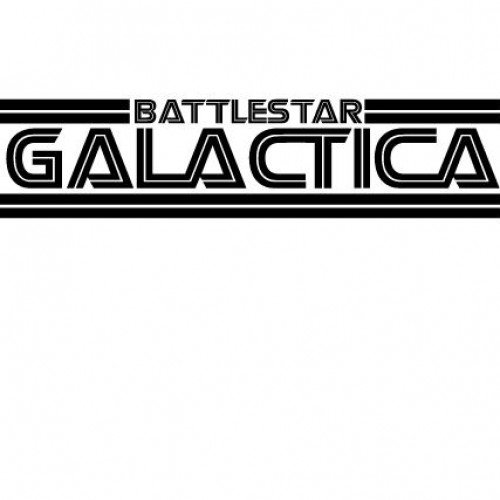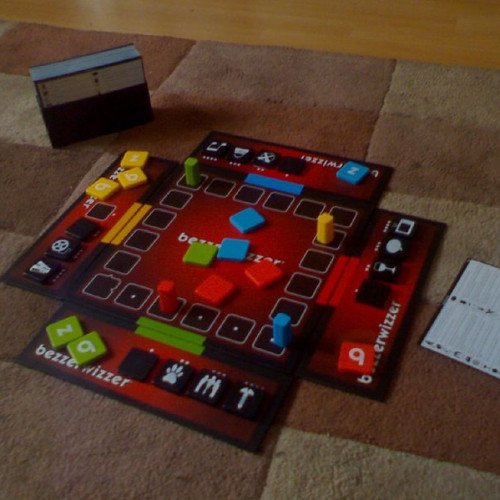"BATTLESTAR GALACTICA" vs "BEZZERWIZZER"

BATTLESTAR GALACTICA
Battlestar Galactica is an American science fiction media franchise created by Glen A. Larson. The franchise originated in 1978 with the original television series, followed by a short-run sequel series (Galactica 1980), a line of book adaptations, original novels, comic books, a board game, and video games. A re-imagined version of Battlestar Galactica aired as a two-part, three-hour miniseries developed by Ronald D. Moore and David Eick in 2003. That miniseries led to a weekly television series, which aired until 2009. A prequel series, Caprica, aired in 2010. All Battlestar Galactica productions share the premise that in a distant part of the universe, a human civilization has extended to a group of planets known as the Twelve Colonies, to which they have migrated from their ancestral homeworld of Kobol. The Twelve Colonies have been engaged in a lengthy war with a cybernetic race known as the Cylons, whose goal is the extermination of the human race. The Cylons offer peace to the humans, which proves to be a ruse. With the aid of a human named Baltar, the Cylons carry out a massive nuclear attack on the Twelve Colonies and on the Colonial Fleet of starships that protect them. These attacks devastate the Colonial Fleet, lay waste to the Colonies, and virtually destroy all but a population of 50,000. Scattered survivors flee into outer space aboard a ragtag array of spaceworthy ships. Of the entire Colonial battle fleet, only the Battlestar Galactica, a gigantic battleship and spacecraft carrier, appears to have survived the Cylon attack. Under the leadership of Commander Adama, the Galactica and the pilots of "Viper fighters" lead a fugitive fleet of survivors in search of the fabled thirteenth colony known as Earth.
Statistics for this Xoptio

BEZZERWIZZER
Bezzerwizzer is a trivia game combining trivia and tactics. The game was invented in 2006 by the Dane Jesper Bülow. The name "Bezzerwizzer" comes from the originally German term "Besserwisser", meaning "know-it-all". Mattel has released versions for the United Kingdom, France, Germany, and the United States. In Denmark there are three different editions of Bezzerwizzer, developed by the Danish company Bezzerwizzer ApS. Until now, Bezzerwizzer ApS has sold more than 100,000 Bezzerwizzer games in Denmark. Bezzerwizzer ApS has also launched the game in Finland, Norway, Sweden, the Netherlands and Belgium. In Spain, the company Falomir Juegos released the Spanish version in 2016. Players are split up into teams, most of the time playing separately. Each team selects a playing piece and takes two Bezzerwizzer tiles (denoted by the letter b) and one Zwap (denoted by the letter z) tile of the same color. Each team then draws four category tiles (see picture above) at random from the bag, and places them on their tile board in order of preference. Each question has a point value determined by the number of dots above it. For example, a team may pick the tiles Music, Film, Food and Politics. If they are confident at getting a question in one subject right they would put it on the fourth square on the board (scoring four points for a correct answer). There is no obvious varying difficulty between questions. Tiles cannot swap positions after being put down. The team that plays first is chosen randomly by picking one playing piece from the bag – the owner of the playing piece goes first, though going first has no real advantage.